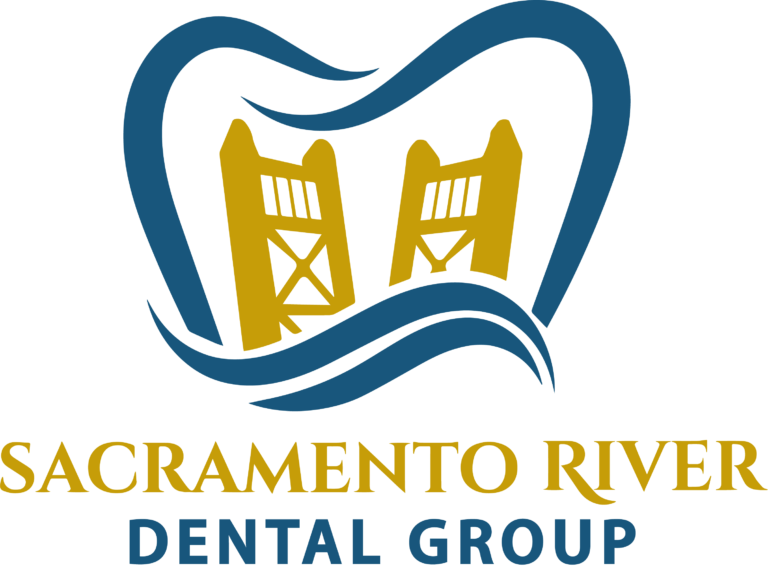Gum Disease: Causes, Symptoms, Prevention, and Latest Treatment Options
Gum disease, also known as periodontal disease, is a prevalent but serious condition affecting the tissues surrounding and supporting your teeth. This guide provides an in-depth look at gum disease, including what it looks like, its symptoms, prevention strategies, and the latest treatments, including options available in Sacramento.
Understanding Gum Disease
 What is Gum Disease?
What is Gum Disease?
Gum disease is an inflammation of the gums that can progress to affect the bone supporting your teeth. It starts with bacterial growth in your mouth and can end with tooth loss if not properly treated. There are two main types: gingivitis and periodontitis.
Gingivitis is the earliest stage of gum disease, characterized by red, swollen gums that may bleed easily. If not treated, it can progress to periodontitis, a more severe form that can destroy the bone and tissues supporting the teeth.
Prevalence
According to the World Health Organization (WHO), almost half of the world’s population suffers from oral diseases, including severe gum disease, which affects around 1 billion people globally (World Health Organization (WHO)). The high prevalence underscores the need for effective prevention and treatment strategies.
Causes and Risk Factors
Common Causes
- Poor Oral Hygiene: Inadequate brushing and flossing habits lead to plaque buildup, which can cause gum disease.
- Tobacco Use: Smoking or chewing tobacco significantly increases the risk of gum disease.
- Hormonal Changes: Hormonal fluctuations during pregnancy, menopause, or menstruation can make gums more sensitive and prone to disease.
- Medications: Certain medications can reduce saliva flow, which protects the gums and teeth.
- Medical Conditions: Diseases such as diabetes can affect the condition of your gums.
Risk Factors
- Genetic Predisposition: Some individuals are more genetically prone to severe gum disease.
- Age: The risk of periodontal disease increases with age.
- Stress: Stress can impair the body’s immune response, making it harder to fight off infections.
- Poor Nutrition: A diet lacking essential nutrients can compromise the immune system, leading to gum disease.
- Obesity: Studies have linked obesity to an increased risk of gum disease.
Biofilm Formation
Bacteria associated with periodontal disease naturally form biofilms, structured communities of bacterial cells enclosed in a self-produced polymeric matrix. Biofilms contribute to the resistance of antibiotics to periodontal pathogens, making infections harder to treat (BioMed Central).
Symptoms of Gum Disease
Early Signs
- Red, Swollen, or Tender Gums: An early sign of gum disease is inflammation, causing gums to become red, swollen, or tender.
- Bleeding Gums: Gums that bleed during brushing or flossing can indicate the presence of gingivitis.
- Persistent Bad Breath: Halitosis, or bad breath that doesn’t go away, can be a sign of gum disease.
Advanced Symptoms
- Receding Gums: Gums that pull away from the teeth, making the teeth look longer than normal.
- Formation of Deep Pockets: Spaces between the teeth and gums can become infected.
- Loose or Shifting Teeth: As the disease progresses, teeth can become loose or shift position.
Diagnosis and Stages
 Diagnosis
Diagnosis
- Professional Dental Examination: Dentists check for signs of inflammation and measure pocket depths around teeth.
- Measuring Pocket Depths: Deep pockets between the teeth and gums are a significant indicator of periodontitis.
- X-rays: These are used to check for bone loss in areas where the dentist observes deep pockets.
Stages
- Gingivitis: The earliest stage of gum disease, involving gum inflammation without affecting the bone.
- Early Periodontitis: Characterized by inflammation and minor bone loss.
- Moderate Periodontitis: Increased bone and tissue damage, leading to moderate bone loss.
- Advanced Periodontitis: Severe bone loss can result in tooth loss if untreated.
Prevention Strategies
Oral Hygiene Practices
- Brushing: Brush twice daily with fluoride toothpaste to remove plaque.
- Flossing: Floss daily to remove plaque and food particles between teeth.
- Mouthwash: Use an antiseptic mouthwash to reduce bacteria and freshen your breath.
Regular Dental Visits
- Professional Cleanings: Regular dental cleanings help remove tartar and plaque buildup.
- Dental Check-Ups: Schedule routine dental check-ups to detect and treat any early signs of gum disease.
Lifestyle Changes
- Quit Smoking: Tobacco cessation significantly reduces the risk of gum disease.
- Healthy Diet: Consume a balanced diet rich in vitamins and minerals to support overall health.
- Manage Stress: Reducing stress can help improve your body’s immune response.
Latest Research and Innovations
 Novel Therapeutic Approaches
Novel Therapeutic Approaches
Recent studies have focused on targeting bacterial virulence factors and biofilm formation rather than solely eliminating pathogens. This approach helps manage antibiotic resistance and promotes the restoration of oral microbiota balance (BioMed Central).
Stem Cell-Based Therapies
Stem cell-based therapies have shown promise in regenerating periodontal tissues. Clinical studies involving various types of autologous stem cells have indicated positive results in periodontal regeneration, offering a potential alternative to traditional treatments (BioMed Central).
Regenerative Treatments
Innovative treatments are being developed, such as membranes that release antibiotics and growth factors directly to gum tissues. These treatments aim to enhance the body’s natural healing processes and prevent the further progression of gum disease (Dental Health).
Impact of Untreated Gum Disease
Oral Health Complications
- Tooth Loss: Untreated gum disease can lead to the loss of teeth.
- Recurrent Gum Infections: Persistent infections can occur, leading to further oral health issues.
Systemic Health Issues
- Heart Disease: There is a link between gum disease and cardiovascular conditions.
- Diabetes Complications: Gum disease can make diabetes management more challenging.
- Respiratory Disease: Bacteria from the mouth can be inhaled into the lungs, leading to respiratory diseases.
- Pregnancy Complications: Pregnant women with gum disease are at a higher risk for preterm births and low birth weight babies.
Special Considerations
Children and Adolescents
- Early Signs: Educate parents on recognizing early signs of gum disease in children, such as red or swollen gums and bleeding during brushing.
- Preventive Care: Promote good oral hygiene habits from a young age to prevent gum disease. This includes regular brushing, flossing, and dental check-ups.
Older Adults
- Increased Risk: Older adults are more susceptible to gum disease due to various factors, including medications and decreased immunity.
- Special Care Needs: Emphasize the importance of regular dental visits and proper oral hygiene practices for seniors to maintain oral health and prevent complications.
Conclusion
Gum disease is a common yet serious condition that, if left untreated, can lead to significant oral and systemic health issues. Preventive measures, early detection, and innovative treatments are crucial in managing and reversing its effects.
 References:
References:
- BMC Oral Health. “Advances in novel therapeutic approaches for periodontal diseases.” (BioMed Central).
- BMC Oral Health. “Stem cell-based therapy in periodontal regeneration: a systematic review and meta-analysis of clinical studies.” (BioMed Central).
- Oral Health Foundation. “Promising new treatment could regenerate gum tissue and prevent tooth loss.” Oral Health Foundation (Dental Health).
- World Health Organization. “WHO highlights oral health neglect affecting nearly half of the world’s population.” WHO (World Health Organization (WHO)).
FAQs Section
1. Can Gum Disease Be Cured?
Gum disease, known as gingivitis, can be cured in its early stages. Effective oral hygiene practices, such as regular brushing, flossing, and professional dental cleanings, can reverse gingivitis before it progresses to periodontitis (BioMed Central) (World Health Organization (WHO)). However, once gum disease has advanced to periodontitis, it cannot be completely cured, but it can be managed and controlled with professional treatment and ongoing oral care.
2. What Can Be Done for Gum Disease?
Several steps can be taken to manage and treat gum disease:
- Professional Cleaning: Regular dental cleanings by a periodontist or dentist help remove plaque and tartar buildup.
- Improved Oral Hygiene: Brush twice daily, floss daily, and use an antiseptic mouthwash.
- Medications: Antibiotics and antiseptics may be prescribed to treat infections and reduce inflammation (Dental Health).
- Scaling and Root Planing: Deep cleaning procedures to remove plaque and tartar from below the gum line.
- Surgical Treatments: In severe cases, flap surgery, bone grafts, and tissue regeneration may be necessary (BioMed Central) (BioMed Central).
3. Is Gum Disease Reversible?
Gingivitis, the early stage of gum disease, is reversible with proper oral hygiene and professional care. If caught early, the inflammation and symptoms can be reversed, and healthy gum tissue can be restored. However, once gum disease progresses to periodontitis, it becomes chronic. While it can be managed and its progression can be halted, the damage already done to the gums and bone is often irreversible (BioMed Central) (World Health Organization (WHO)).
4. What is the Cause of Gum Disease?
Gum disease is primarily caused by the buildup of plaque—a sticky film of bacteria—on the teeth. If not removed through regular brushing and flossing, plaque hardens into tartar, which can only be removed by a dental professional. The presence of plaque and tartar leads to inflammation of the gums. Other contributing factors include:
- Poor Oral Hygiene: Inadequate brushing and flossing habits.
- Tobacco Use: Smoking or chewing tobacco significantly increases the risk.
- Hormonal Changes: Hormonal fluctuations during pregnancy, menopause, or menstruation can make gums more sensitive and prone to disease.
- Medications: Certain medications can reduce saliva flow, which protects the gums and teeth.
- Medical Conditions: Diseases such as diabetes can affect the condition of your gums.
- Biofilm Formation: Bacteria associated with periodontal disease naturally form biofilms that contribute to antibiotic resistance and infection persistence (BioMed Central) (Dental Health) (World Health Organization (WHO)).
Addressing these causes through improved oral hygiene, regular dental visits, and targeted treatments can significantly reduce the risk and progression of gum disease.
Schedule Your Gum Disease Treatment with Sacramento River Dental Group
 If you’re experiencing symptoms of gum disease or want to ensure your oral health is at its best, it’s essential to seek professional care. At Sacramento River Dental Group, our seasoned professional dental doctors specialize in comprehensive gum disease treatment and prevention. We offer the latest innovative therapies and personalized care to help you achieve a healthy, beautiful smile.
If you’re experiencing symptoms of gum disease or want to ensure your oral health is at its best, it’s essential to seek professional care. At Sacramento River Dental Group, our seasoned professional dental doctors specialize in comprehensive gum disease treatment and prevention. We offer the latest innovative therapies and personalized care to help you achieve a healthy, beautiful smile.
Don’t wait for gum disease to progress—early intervention is key. Schedule your appointment today with Sacramento River Dental Group in Sacramento, CA, and take the first step towards optimal oral health. Contact us now to learn more about our services and how we can help you maintain a healthy mouth for life. Your journey to better oral health starts here!

 What is Gum Disease?
What is Gum Disease? Diagnosis
Diagnosis Novel Therapeutic Approaches
Novel Therapeutic Approaches
